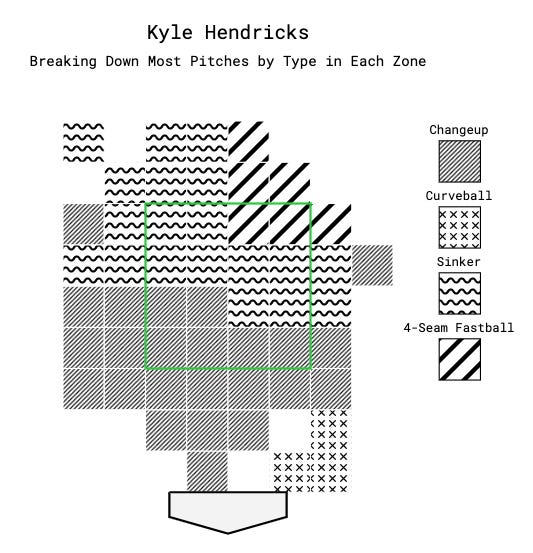Stealing Signs - Issue 06 (12/27/19)
Projects to Work on, Robot Umps, Spirited Away, The Whopper, and an Audio Innovation Lab
Worth Reading
Work on These Things
Tyler Cowen, Marginal Revolution
“[work on] more studies of super-effective people. Either individually or collectively. If you take the outliers in any domain, what should our intuitions be for understanding the underlying processes determining how many people could have ended up in those positions? How many people had the right genes but had the wrong upbringing? How many people had the right genes and the right upbringing but the wrong luck, or perhaps society failed them in some other manner?”
Tyler lists 16 projects (one of which is above) he’d like to see funded and/or worked on. They are all truly impactful projects, but what I’m most impressed with is how effectively he pitches the projects. Each project description is succinct, engaging, and powerful. This really struck me. In addition to the project quoted above, my favorite ideas are:
Bloomberg Terminal for everything
Cultures of Excellence
Regenerations at the government layer
IQ Paradox
Summaries of the state of knowledge in different fields
Twitter is a great start on the last project imo. It doesn’t take long to find an expert in any field and the social drivers of the product may make it easier to mobilize the leading tweeters to publicly organize the knowledge in their field.
A Sobering Message about AI
Tom Simonite, WIRED
“We’re kind of like the dog who caught the car,” Aguera y Arcas said. Deep learning has rapidly knocked down some longstanding challenges in AI—but it doesn’t immediately seem well suited to many that remain. Problems that involve reasoning or social intelligence, such as weighing up a potential hire in the way a human would, are still out of reach, he said. “All of the models that we have learned how to train are about passing a test or winning a game with a score, [but] so many things that intelligences do aren’t covered by that rubric at all,” he said.
In short, the foremost leaders in artificial intelligence are deeply concerned about its current trajectory: “We have machines that learn in a very narrow way.” This appears to be an increasingly common concern for AI researchers and engineers, and I think we’re nearing a significant turning point that will rapidly advance the capabilities of AI. The first issue of Stealing Signs included a proposal that addresses this exact problem -- a new framework for measuring intelligence.
I particularly like the recommendation that AI researchers turn to nature for inspiration in developing new algorithms and learning models. I anticipate the next big thing in AI research will be a focus on nature and attempt to extract useful models and learnings from our environment. It’s very logical imo.
How Bullets Work in Video Games
Tristan Jung, Gamasutra
“The advantages of using projectile ballistics shine in games where realism is the top priority. Since every projectile exists on its own, you can now factor in wind, friction, gravity, temperature; any force that should act on the bullet. Now that you can change the physics, players can now use weapons other than simple guns and lasers; you can now add grenade and rockets to your arsenal.”
Warning: mildly graphic content
A neat post outlining three different approaches video game bullet dynamics. It’s a sneaky complex problem and the author suggests there’s room for further advancement.
I’ve been thinking a lot about gaming given a deal I’m working on at Founder Equity and the recent Star Wars trailer release in Fortnite. Video games are the newest social network. People spend as much time in Fortnite as they do on Facebook and they’re increasingly spending on goods to enhance their experience in-game. I’m excited about it. A lot more research and learning to be done, but we’re in the midst of a transition from connective social products to experiential social products and video games are leading the charge.
Grey Thinking
Farnam Street
“As we get older, we start to get rigid. We are forced to take tests with definite answers — A, B, C, or D? How well we do at these determines, to an extent, our position in life. The shortcomings of this system are well documented so we won’t rehash them. But a major symptom of this style of learning, combined with our natural proclivity to land on easily digestible answers, is that we start thinking in rigid categories: War is good. War is bad…”
A good reminder that reality is all a grey area. I’ve actually been thinking a lot about “picking sides” over the last few months. I once heard that the biggest mistake a junior venture capitalist can make is to be on the fence about a company or, in other words, not pick a side. In practice this looks like saying “I like the team but not sure about market size so it’s interesting but not sure it’s the right fit, I like x but not y, z is concerning, but, again, the team…” Instead, the advice I overheard suggests junior VC’s should sound more like “I like the company a lot because x,y,z. There are risks, but I’m confident x,y, and z mitigate them and that this is a solid bet.” Of course, certainty should always be informed and supported by market tailwinds, data, and historical analysis, but it seems that junior VC’s have all the freedom in the world to be wrong and, thus, optimize for certainty. Ideally, this makes them better VCs over time and, thus, their certainty more accurate.
While junior VCs are free to be certain, it’s really friggin hard!! Especially at the early stage, there are so many “unknown unknowns” that it’s impossible to discover and vet all of the possible factors that will influence a business over time, even if one is an expert in a relevant industry. That said, I think I agree with the “pick a side” advice as a young VC. We are free to be wrong and, as long as we learn from the bad apples, I think it’s a great way to become a good investor. Pick and learn!
Overconfidence
Jason Zweig, WSJ
When I found out that, like all first-year students, I was required to take Freshman Composition, I exploded in high dudgeon: “I’m not taking a class that teaches me how to write! I already know how to write! I’m a writer already!”
I’m certain everyone can relate to this ;). It’s a great piece on the growing pains of childhood and the realization we didn’t actually have it all figured out at 18 yrs. old. Really enjoyed it. I have absolutely become more comfortable saying “I don’t know” and I think it’s a valuable response because it almost always results in discovery. New information, new people, new ideas, new perspectives... It’s uncomfortable but powerful. If people want to practice saying “I don’t know” more often, I’m happy to walk around the office asking questions about pitching mechanics, pitch grips, and baseball in the snow 😎.
Duck and Dumplings for Christmas
Nina Yun, Eater
“Two thousand napkins folded with bulk paper napkins sat nearby, on emergency reserve. One thousand more new plates had been ordered in anticipation for Christmas Day’s service; so had more forks, more spoons, more glasses. Fifteen hundred ducks were ordered for just Christmas Eve and Christmas Day, nearly 3,000 egg rolls, crab rangoons, and dumplings made.”
This article was included as a nod to the holiday season! An interesting look behind the scenes of a small Chinese restaurant in Kansas City, MO that is swamped every year on Christmas. Some great photos, too. Laughed out loud when I read they don’t have a POS system. Some things never change.
<stuff> Weekly!
LOL Weekly - A Whopper of a Secret
Burger King hid a Big Mac behind their Whopper in every Whopper ad this year. Brilliant lol.
Funding Weekly - Weave Music: Audio Innovation Lab
“Weav Music has developed proprietary technology that personalizes the experience of listening to music by adapting a recorded track in real-time, to match a listener’s activity, remixing energy, structure and crossfades while preserving quality and artistic integrity”
I love this idea. Research shows that sound can have a profound impact on our brains and cause reactions similar to that of drugs and other stimulants. The ability to manipulate existing music to enhance brain function and physical performance is compelling imo and I’m excited to see its commercial applications. Speaking of commercial applications, Peloton invested in this $5M Series A Round. Huge opportunity for them to differentiate their technology, create (and sell) custom tracks and playlists, and potentially make scientifically-backed performance claims. Clear synergy between Weav and Peloton.
Baseball Weekly - Robot Umps!
“Umpires agreed to cooperate with Major League Baseball in the development and testing of an automated ball-strike system”
Love this. It’s so much better than current state. No reason to continue with entirely avoidable missed ball/strike calls that, imo, swing momentum more than any other ruling in the game. I anticipate a negative reaction from players in the early days as they figure out the new strike zone, but a net positive reaction over time. At the end of the day, it’s pretty hard to reasonably argue against the correct call. Plus, maybe this will give Joe West (umpire) more time to record his next country album.
If you’re looking for more baseball innovation I highly recommend looking into the Atlantic League referenced in this article. They constantly expand the frontiers of baseball via new technology and rules experimentation - they’re essentially MLB’s test kitchen. This Wharton Moneyball podcast is a great place to start.
Art Weekly - Posters for Theatrical Release of Spirited Away
Spirited Away is one of my favorite movies. An incredible story with gorgeous animations. Below are posters made by designer Huang Hai for the Chinese theatrical release of the movie. So cool.


Chart Weekly - Kyle Hendricks
Pretty cool visual of what pitches Kyle Hendricks throws the most in each area of the strike zone.




